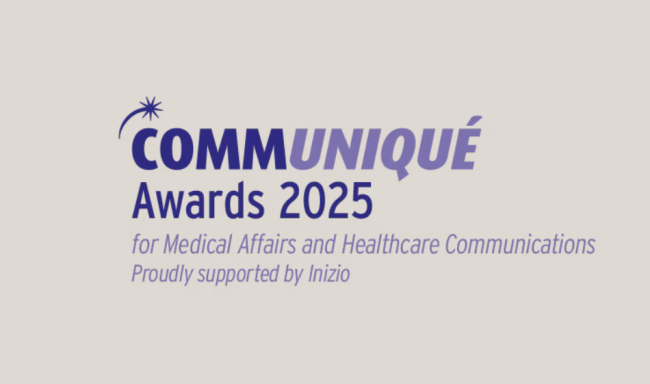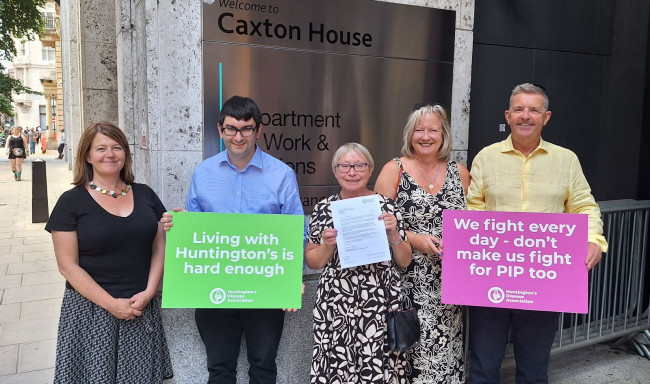Over the past year, there have been multiple updates from numerous clinical trials, some positive and some not so. One thing that we have learned in the last year is that even the trials that don't get the initial results we have hoped for, so much has been learnt which has helped develop new trials. Research will keep pushing forward and with each success and failure it is bringing something valuable to the table which could play a part in a new drug or treatment.
Ricardo Dolmetsch from uniQure said in this year's CHDI Conference:
"Diseases are never cured by any individual or even single company, it requires this really complicated ecosystem and you need as many shots on goals as you possibly can."
Roche and tominersen
Prior to 2019
Ionis Pharmaceuticals had shown that the drug tominersen appeared safe and that it could lower the amount of huntingtin protein in the spinal fluid of people with Huntington's disease.
2019
Roche started a global clinical trial with the drug tominersen in 2019 called GENERATION-HD1. This was a Phase 3 trial, designed to determine whether a drug can slow or stop the progression of Huntington's symptoms. 800 participants from around the world were recruited for the two year trial and were split into three groups.
- One group received tominersen via spinal injection every eight weeks.
- One group received tominersen via spinal injection every 16 weeks.
- One group received a spinal injection but no drug (placebo).
2021
Unfortunately in March 2021, Roche stopped dosing people in the trial, because the independent data monitoring commitee had noticed potential safety issues. Not only did tominersen have no overall benefit for people with Huntington's disease, but the people in the eight week group seemed to be doing worse, symptomatically, than those in other groups.
Analysing data
Over the course of the past 18 months since the halting of the GENERATION-HD1 trial, Roche analysed the data from the trial, to try and understand what went wrong, and whether there might be a future for tominersen in Huntington's disease. New analysis showed that some participants in the trial might have benefitted from tominersen. Specifically, younger people who began the trial in earlier stages of Huntington's disease who did not seem to experience a worsening of symptoms over the course of their participation.
The trial wasn’t designed to split people into smaller analysis groups, so it’s not clear how significant this finding is or if it will hold true for a larger group of people. However, Roche believed the data was hopeful enough to test tominersen again, this time in younger people with earlier signs and symptoms of Huntington's disease.
The new tominersen trial
It was announced at the European Huntington’s Disease Network (EHDN) conference in Bologna, Italy the plans for the new trial. The new tominersen trial will be called GENERATION-HD2, and if all goes as planned it will begin enrolling people with Huntington's disease in early 2023. This is a Phase 2 study, looking at both safety and how huntingtin levels are lowered with different doses of tominersen. They aim to recruit about 360 people in 15 countries. It will again be split into three groups.
- One group will receive a lower dose of tominersen (60 mg) via spinal injection every 16 weeks.
- One group will receive a higher dose of tominersen (100 mg) via spinal injection every 16 weeks.
- One group received a spinal injection but no drug (placebo).
We are yet to learn of the full recruitment criteria but we know that the trial will recruit people aged 25 to 50, with very early subtle signs of Huntington's disease or early movement symptoms. People who participated in these GENERATION-HD1 tominersen trials will not be eligible for GENERATION-HD2. HDBuzz said:
"Just like with GENERATION-HD1, an independent data monitoring committee (iDMC) will review the data as the trial progresses. Roche scientists hope that lower, less frequent doses, and earlier treatment could help to overcome the safety issues and might reveal some of the potential benefits of huntingtin lowering with tominersen."
Wave Life Sciences
Wave Life Sciences are also using a Huntingtin lowering drug in the attempt to improve Huntington's symptoms. Wave's approach varied a little from Roche's. Roche's aim was to silence both the healthy gene and the mutated gene using the ASO (gene silencing treatment using DNA molecules to switch off a gene). Wave's plan was to only silence the expanded copy of the gene as they believe that keeping some of the healthy protein might be beneficial.
Clinical trials
An earlier trial testing the gene silencing failed. The failure caused no harm but it simply didn't lower the Huntingtin as expected.
Fast forward to now and Wave has created a new gene silencing treatment. They are now running a trial called SELECT-HD which will test whether this new selective ASO (gene silencing) drug can lower the mutated protein.
The aim of the first phase of the study is to test safety and to understand dosing. They will look to recruit around 36 participants. If successful, the next trial would be to understand whether the drug will work to silence the gene and therefore affect the symptoms. At this stage, the safety of the drug must be tested on a small scale before they can move forward with a second phase of the trial.
Lowering Huntingtin
Wave came through with the positive news that they saw reduced levels of the mutant protein with the 30 or 60 mg dosage. This was the first time that one of their trials has shown to lower levels of the target protein. They shared that they were able to lower the levels by 20-30% but leaving the regular one the same.
“This is, as far as we know, the first time anyone has ever selectively lowered only one copy of a protein inside of a human body.”
Scientists at Wave have developed a test that they believe allows them to measure both of these things from the same sample meaning that they can see the impact a treatment has on the levels of both normal and mutant huntingtin.
To conclude
Although we are yet to know that once we successfully lower the mutant Huntingtin gene what it actually will do in terms of slowing or halting symptom progression, pharmaceutical companies will continue to push forward with their trials in order to hopefully find the answers.
As well as Huntington's lowering trials, there is lots of other innovative research going on and we remain hopeful that with all the different avenues that are being worked on, one will help us develop a treatment.
All of this couldn't be done without the selfless volunteers who take part in these trials and the researchers who dedicate their time to finding a treatment for Huntington's disease.



